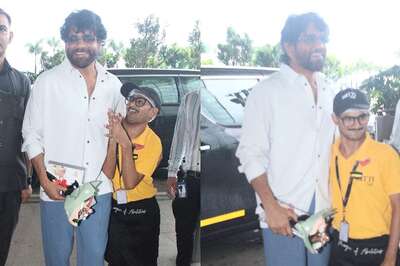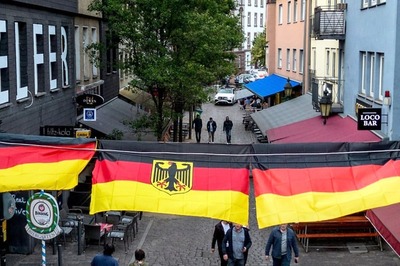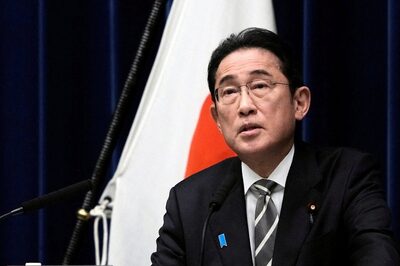
views
UNITED NATIONS: The U.N. special envoy for Somalia urged the countrys political leaders to redouble efforts to ensure that the entire Federal Parliament is elected before the end of the year so that presidential elections can be held as soon as possible.
James Swan told the U.N. Security Council on Wednesday that progress in the electoral process has been slow and uneven and elections for the vast majority of seats in the Federal Parliament havent started. In addition, he said, electoral security preparations need to be accelerated and a list needs to be published of the 30% of seats reserved for women in the lower House of the People.
He welcomed the completion of elections for the 54 senators in the Upper House of parliament, including 14 women representing 26% of the chamber — an increase from 2016 but still below the 30% target. He said it is also encouraging that elections for the 275 seats in the House of the People have started, with two members chosen and elections for an additional 11 seats announced to begin this week.
But Swan stressed: Although progress is being made, the efforts of Somalias political leaders will need to be redoubled in the coming weeks to bring the elections for the Federal Parliament to a successful conclusion, so that presidential elections can then be held as soon as possible.
The completion of these elections is more important than ever, so that all efforts can return to the key governance, security, and development priorities in Somalia, he said.
The ongoing delays in the electoral process continue to stall progress in other critical areas and hamper the achievement of national priorities beyond the elections,” Swan warned, including reforming the constitution and justice sector, and advancing the development agenda and financial reforms.
Three decades of chaos, from warlords to al-Qaida affiliate al-Shabab and the emergence of an Islamic State-linked group, have ripped apart the country that only in the past few years has begun trying to rebuild and find its footing.
The pressure on President Mohamed Abdullahi Mohamed to hold elections has intensified since scheduled elections on Feb. 8 failed to take place because of the lack of agreement on how the vote should be carried out.
Talks between the federal government and regional leaders that began in March broke down in early April. At the presidents request, the lower house of parliament then adopted a special law that extended the terms of current office holders for two years and abandoned a Sept. 17, 2020 agreement on indirect elections, reverting instead to a one-person, one-vote model.
Those decisions sparked widespread opposition, leading to the mobilization of militias, exposing divisions within Somali security forces, and resulting in violent clashes on April 25.
After the clashes, President Mohamed on May 1 asked the lower house of parliament to reverse its actions that included extending his mandate for two years.
He also asked lawmakers to back the agreement the federal government reached with regional states last Sept. 17 on a way forward for the vote, and he asked Prime Minister Mohammed Hussein Roble to lead the election preparations and the related security measures. This led to a May 27 agreement on holding indirect elections this year.
But the process was further delayed after the president suspended the prime ministers power to hire and fire officials in mid-September, the latest action in their increasingly divisive relationship.
Swan told the council that tensions between the president and the prime minister in August and September over two issues, the appointment of senior security officials and the handling of an investigation into the disappearance of an intelligence agent, have now eased.
The U.N. special representative called for all parties to swiftly conclude parliamentary elections and for the full respect of fundamental rights during the campaign and electoral periods, including peaceful assembly, and the freedom of movement, association, and expression.
He warned that the security situation in Somalia continues to be volatile with the al-Shabab extremist group remaining a serious threat. He pointed to its continuing use of improvised explosive devices and increasing use of suicide bombers.
So far in 2021, Swan said, the U.N. Assistance Mission in Somalia has documented 964 civilians killed or injured as a result of armed conflict, with al-Shabab responsible for almost two-thirds of civilian casualties.
He said humanitarian organizations estimate that 7.7 million Somalis will require assistance in 2022, and he expressed grave concern that the 2021 U.N. humanitarian plan is only 51% funded.
Some 1.2 million children under the age of five are likely to be acutely malnourished in 2022 without immediate treatment, Swan warned.
He said some 2.9 million people are estimated to be internally displaced throughout the country, one of the highest numbers in the world.
Disclaimer: This post has been auto-published from an agency feed without any modifications to the text and has not been reviewed by an editor
Read all the Latest News here




















Comments
0 comment